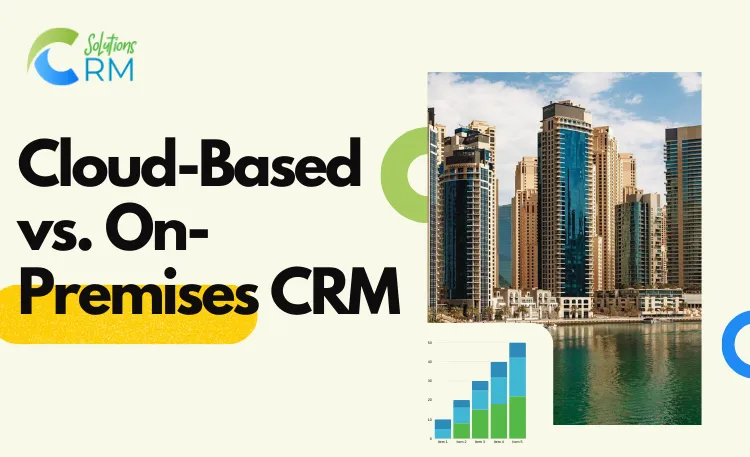The world of Customer Relationship Management (CRM) offers businesses a multitude of choices when it comes to managing customer data and interactions. One of the most critical decisions you’ll face is whether to opt for a cloud-based or on-premises CRM solution. In this article, we’ll compare these two options to help you make an informed choice that aligns with your business’s specific needs.
Understanding the Basics
Before diving into the comparison, let’s clarify the fundamental differences between cloud-based and on-premises CRM:
Cloud-Based CRM: These solutions are hosted on remote servers, typically maintained by the CRM provider. Users access the system through web browsers or mobile apps, and data is stored in the cloud.
On-Premises CRM: With on-premises CRM, the software is installed and operated on servers located within your organization’s physical premises. Users access it via a local network.
1. Cost and Scalability
Cloud-Based CRM: Cloud-based solutions are subscription-based, which means you pay a recurring fee. This often includes maintenance, updates, and support. The initial cost is generally lower, making it an attractive option for small to medium-sized businesses. Scalability is a significant advantage, as you can easily adjust resources to match your growth.
On-Premises CRM: On-premises solutions require a substantial upfront investment in hardware, software licenses, and IT infrastructure. While this may be suitable for large enterprises with specific security requirements, it can be cost-prohibitive for smaller businesses. Scalability can be more challenging and costly to achieve.
2. Maintenance and Updates
Cloud-Based CRM: Maintenance and updates are typically handled by the CRM provider, reducing the burden on your IT team. This ensures that your system is always up-to-date and secure without requiring significant in-house resources.
On-Premises CRM: With on-premises CRM, you are responsible for maintenance, updates, and security patches. This demands a dedicated IT team and budget for ongoing maintenance.
3. Accessibility and Mobility
Cloud-Based CRM: Cloud-based solutions offer excellent accessibility. Users can access the CRM from anywhere with an internet connection, making it ideal for remote and mobile workforces. This flexibility promotes collaboration and responsiveness.
On-Premises CRM: On-premises solutions are typically accessed only within the physical office, which can limit flexibility and remote work capabilities.
4. Security and Control
Cloud-Based CRM: Cloud providers invest heavily in security measures, often exceeding what individual businesses can achieve. However, some organizations with highly sensitive data may have concerns about data control.
On-Premises CRM: On-premises solutions provide greater control over data since it’s hosted within your organization’s infrastructure. This can be appealing for industries with strict compliance requirements.
5. Implementation Time
Cloud-Based CRM: Cloud-based solutions generally have quicker implementation times since they require fewer hardware and software installations. You can get up and running within weeks.
On-Premises CRM: Implementing on-premises CRM can be a lengthy process due to the need for hardware setup, software installation, and configuration. It may take several months to be fully operational.
Conclusion
The choice between cloud-based and on-premises CRM ultimately depends on your business’s specific needs, budget, and preferences. Cloud-based CRM offers flexibility, lower initial costs, and easy scalability, making it a popular choice for many businesses. On the other hand, on-premises CRM provides greater control and may be suitable for organizations with strict data security and compliance requirements.
Carefully assess your organization’s unique circumstances, growth trajectory, and IT capabilities to make the right choice. Whichever option you select, a well-implemented CRM system can significantly enhance customer relationships and drive business success.




